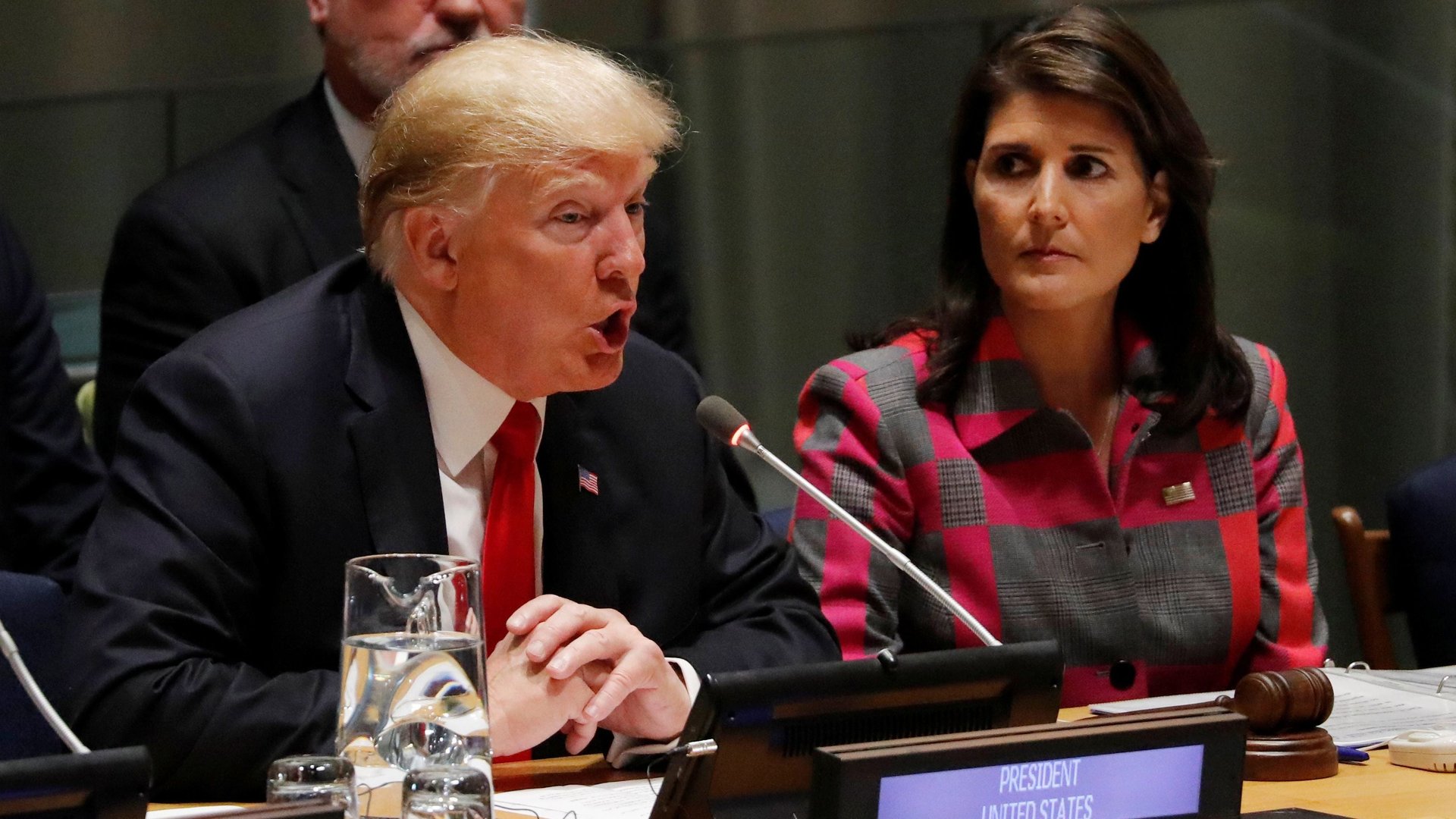Trump aims to lead at UNGA, but his authority at home is eroding
Donald Trump will address the United Nations today, with a focus on US “sovereignty.” As White House advisors have explained in recent days, that means putting the will of the American people over that of the international community, trimming aid for countries and UN agencies that don’t agree with Trump’s positions, and questioning long-standing alliances and multilateral agreements.


Donald Trump will address the United Nations today, with a focus on US “sovereignty.” As White House advisors have explained in recent days, that means putting the will of the American people over that of the international community, trimming aid for countries and UN agencies that don’t agree with Trump’s positions, and questioning long-standing alliances and multilateral agreements.
But whether Trump’s leadership truly represents the will of the American people, or even the will of his own federal government, is a growing question. Bob Woodward’s book Fear and a subsequent New York Times anonymous op-ed claimed that some of Trump’s own advisors are quietly reining him in—and even deliberately undermining his authority.
A few recent examples:
The Department of Justice pushes back
On Sept. 17, Trump ordered his Department of Justice to release the text messages of multiple Federal Bureau of Investigation officials, as well as unredacted transcripts of interviews related to the special counsel investigation into Russian election meddling. Asked whether it would comply, an FBI spokesman initially said the bureau had “no comment.”
Behind the scenes, the DOJ pushed back. And on Sept. 21, Trump reversed position, saying that a meeting with the Justice Department had convinced him that releasing the sensitive information would have a negative impact on the Russia probe.
Three days later, months of tension between the DOJ and Trump came to a head on Sept. 24, when multiple reports said Rod Rosenstein, the Justice department official in charge of special counsel Robert Mueller’s probe into Russian interference, might be fired or resign. Trump and Rosenstein will meet on Thursday, a showdown that now looms large over the UN proceedings.
A defense department on its own
Under defense secretary James Mattis, the Pentagon has ignored Trump’s orders to bomb embattled Syrian leader Bashar al-Assad, and failed to quickly ban transgender people.
Recently, it refuted Trump’s explanations of how to position the US military in Poland. During a press conference Sept. 18, Trump claimed that Poland would pay “billions of dollars” to host a permanent US military base. In the future, he added, the US military could demand payment from other countries where it has presence:
Poland would be paying billions of dollars for a base. And we’re looking at that more and more from the standpoint of defending really wealthy countries and not being reimbursed, paid.
It’s one thing when we defend countries that can’t defend themselves and their great people. And we should help them; we don’t expect anything for that. But when we’re defending immensely wealthy countries and they’re not paying for the defense to the United States, they’re only taking advantage of us. And we are in discussions with numerous countries, all of whom you know, about payment. Payment.
That’s not really how it works, a Pentagon spokeswoman explained to Quartz.
“There has not been anything official decided” on the Polish military base, she said. “How it was briefed in the briefing today doesn’t mean that’s how it would end up,” she said, referring to the president’s speech.
Generally, she explained, the US signs complex agreements with the countries hosting its military bases. These include stipulations on everything from land use, to US training for local troops, to responsibility for the base’s electrical bill.
Right now, the US defense department and the Polish minister of defense are reviewing the possibility of a US base, but there are no more details available. “It is a very comprehensive process,” she said. A copy of a proposal from the Polish government recently obtained by Polish media says that the Polish government could provide “funding” of $1.5 to $2 billion, which includes the cost of infrastructure it may build in Poland and other subsidies, not a “payment” to the US.
The “Iran meeting” that isn’t
Power struggles inside the Trump administration have also roiled the president’s plans for UNGA. Back on Sept. 4, US ambassador to the UN Nikki Haley said Trump would chair an international meeting on “Iran’s violations of international law and the general instability Iran sows throughout the entire Middle East region,” as Quartz earlier reported.
But after pushback from Iran, France, and Britain, the White House decided to broaden the meeting’s topic to ”weapons of mass destruction.” A focus on Iran would have meant the country’s representatives could attend the meeting per UN protocol, and Trump’s advisors were loathe to put Trump and Iranian president Hassan Rouhani at the same negotiating table, White House officials indicated in background briefings.
Nonetheless, Trump tweeted Sept. 21 that he would chair the UN Security Council meeting “on Iran,” a sign that he’s not listening to his own advisors. That appears to be mutual.